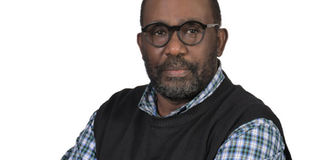There are devils in the detail of the Jan 14 vote

Author, Mr Charles Onyango-Obbo. PHOTO/COURTESY.
What you need to know:
- Not too long ago, I discussed this same issue with a friend, who sits in Mengo (the seat of the Buganda Kingdom government). We came to the discussion after I told him how Kenya is dealing with a big problem of young people going to court to declare their parents incompetent, so they can take over their property.
Yet again, we had an election where, as has been the case in nearly 60 years now in Uganda, we really don’t know who the winner is.
The foul-up of the vote seems to be so extensive, whether President Yoweri Museveni or Robert Kyagulanyi, aka Bobi Wine, won it, is a matter of religion. It depends on what you believe. Be that as it may, some lessons from the elections are indisputable.
The mass of young Ugandans are angry, and getting angrier with the status quo. This time many more were killed to deter them from “making trouble”. At this rate, by the 2026 election, the State will need massacres.
That doesn’t have to be, if we could understand what is driving this anger in a Uganda, which has the world’s third youngest population.
Not too long ago, I discussed this same issue with a friend, who sits in Mengo (the seat of the Buganda Kingdom government). We came to the discussion after I told him how Kenya is dealing with a big problem of young people going to court to declare their parents incompetent, so they can take over their property.
When they do, they quickly sell off the property to buy Subarus, and go to all the fashionable places where they can take impressive photographs and post on the Facebook and Instagram pages. Before long, they are poor – and delete their accounts.
He noted that the problem is growing in Uganda, and in Buganda it was reaching crisis points. In addition to property fights, in Buganda, younger members of old propertied families were flogging mostly land, to buy trinkets, pay for trips for Dubai, and on the better side, pay for school fees and medical bills.
The problem was so big that Mengo had discussed what steps might be taken to stem the tide. The result, which frightened Mengo, was there was a sharp rise in both landless people, and the fallen landed middle class.
Internally, the political backlash scared them, because for Buganda, it was resulting in the first major failure of the transfer of generational wealth in over a century. However, it is not a Buganda problem. It is a Ugandan one. There are simply too many young Ugandans who have nothing. The changes that have happened in just a generation are astounding.
Today, in Uganda, you can meet a group of 15 young people; five of them having gone to good schools abroad; another five having Masters degrees, and only five of them having (poor-paying) jobs. We have never had so many highly educated people with nothing to do.
Some of this for a good reason. Because we have less war and political instability, and the local creation of wealth has continued largely unstopped from the late 1980s, their parents are living longer, but have captured most of this prosperity.
For every photograph of illusionary coolness young people post on social media, there is actually another one of their “hustle”; African dress making, the fancy cushion, the piece of woodwork, a delivery service, a cleaning service, name it. Many of these hustles die on social media. There is no path for them to market.
The proliferation of second-hand products means that many young people have been able to buy tools - a saw, a tool box, a lawn mower. In Kampala, and around this continent, they turn up every morning and sit in the sun on the side of the road with their tools, hoping, and hoping.
Upcountry, they sit with a hoe, or just muscle, waiting for work on a market day.
The desolation from losing in ill-conceived gambles; the resilience and/or capture of the economy by the post-Cold War elite, and the stalled economic expansion (part of it a result of corruption and a failure to expand the pan-East African and pan-African market and opportunities as a result of nationalistic parochialism) has choked off jobs and generational wealth transfer.
Bobi Wine didn’t articulate these problem this way, but they nevertheless saw him as one of them. These young people are too many, you can’t kill them all or have as your principal weapon beating them into submission. There is a way.
In China, you go to a factory that makes a product with 20 parts, but each part is made by an independent hustler. We can do that here. The government has done some infrastructure, now it needs to open regional markets wider. End that silly quarrel with Rwanda, let people sell milk and honey across the border.
End this madness of a loosely structured yet highly centralised Operation Wealth Creation (OWC) based in Kapeeka. Break it up into regional OWCs, based on different models suited to local conditions. And, for Christ’s sake, throw some brains, not brawn, at the problem.
Mr Onyango-Obbo is a journalist,
writer and curator of the “Wall of Great Africans”. Twitter@cobbo3





